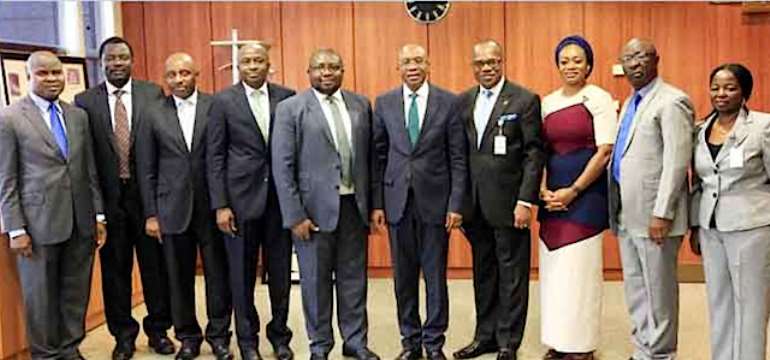Over 18% Lending Rate, Economists Fault MPC

Economists have argued the Monetary Policy Committee of the Central Bank of Nigeria over its decision to increase the benchmark interest rate by 50 basis points to 18 per cent from 17.5 per cent.
The experts spoke in reaction to the lending rate announced by the Governor of the Central Bank of Nigeria, Godwin Emefiele, on Tuesday.
Emefiele said, “The MPC committee voted to raise the MPR by 50 basis points to 18 per cent, retain asymmetric corridor at +100 and -500 basis points around the MPR. Members resolved by a majority vote to raise money policy rate NPR by 50 basis points. In summary, 10 members voted to raise MPR by 50 basis points, one member voted to raise MPI by 25 basis points, and one member voted to hold the MPR.
“All members voted to keep all other parameters constant. The MPC voted to raise MPR to 18 per cent, retain a symmetric corridor plus 100 and minus 500 points around the MPR, retain the CRR at 32.5% and retained liquidity ratio at 30 per cent.”
A professor of Economics at the Olabisi Onabanjo University, Sheriffdeen Tella, said, “The rake hike is unnecessary. Who is even borrowing from the banks? Can the banks lend anybody money when they don’t have money? The MPR is supposed to be a signal to the banks; if they increase MPR, the central bank is saying, ‘charge more for loans.’ The loans are not even there. It is when the banks receive money that they can create money to give as loans.
“What one expects from them is to leave the MPR as it is presently and work on how the central bank can make the banks work, getting cash, not when banks are still rationing cash. If they had enough cash, they won’t be rationing money.”
Also speaking, a professor of International Economic Relations at Covenant University, Ota, Jonathan Aremu, said that the CBN would be putting the cart before the horse by deliberating on the Monetary Policy Rate without addressing the naira crisis that has exacerbated the inflation problem in the country.
He said, “The simple quantity theory of money actually explains the basis for inflation, that if so much money is available and there is less goods, the prices will rise, but the money is not available to even produce the goods.
On his part, the Chief Executive Officer of the Centre for the Promotion of Private Enterprise, Muda Yusuf, urged the apex bank to prioritise issues bordering on monetary policy management, as this would help tame the inflation rate in the country.
